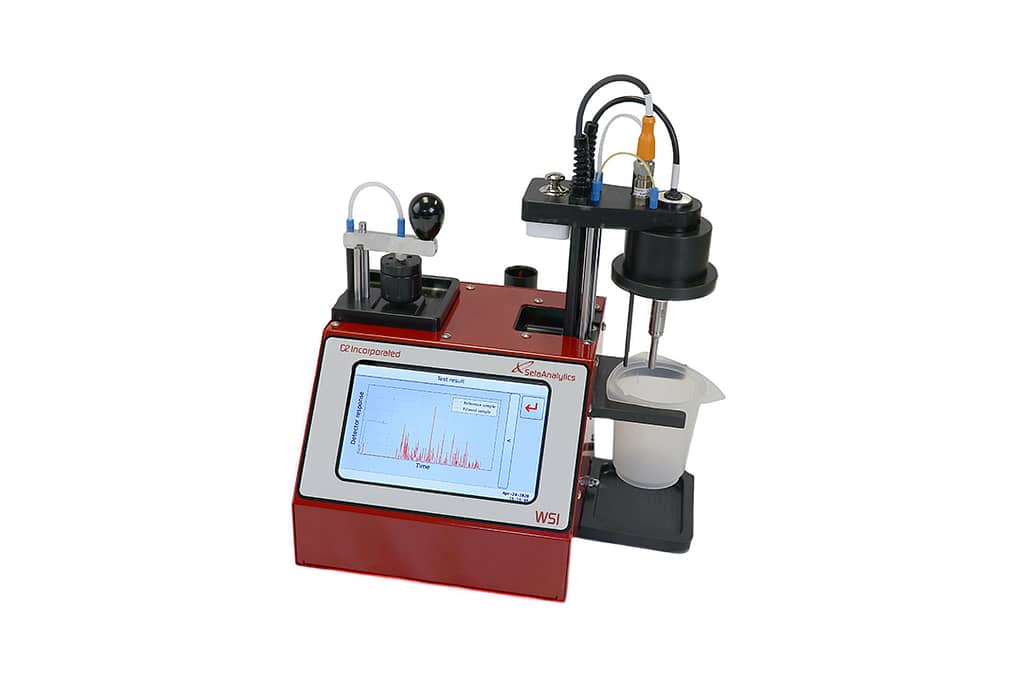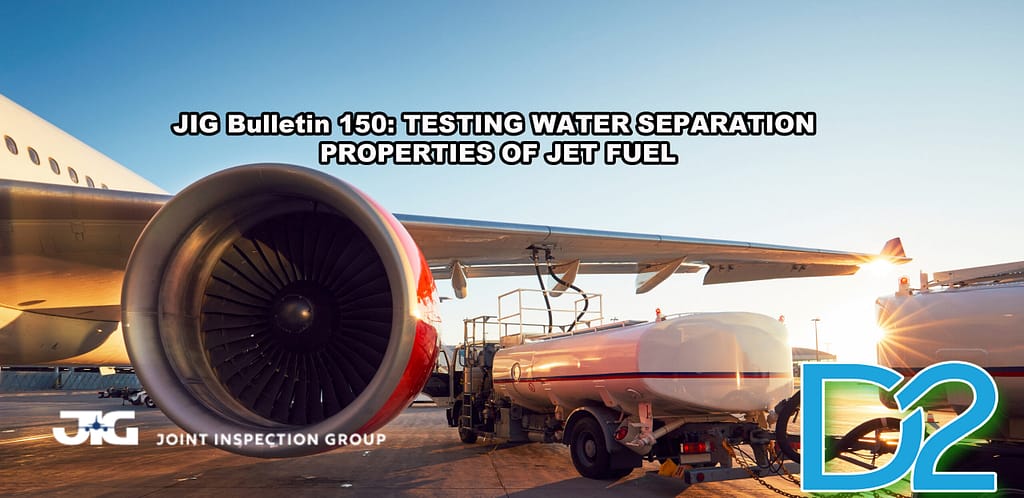SUMMARY
Full JIG Bulletin 150: Bulletin-150-Testing-Water-Separation-Properties-of-Jet-fuel-Revised-MSEP-Protocol
- The preferred method for testing fuels containing a Static Dissipator Additive [SDA] downstream of the Point of Manufacture is ASTM D8073
- ASTM D8073 has been approved as alternative method for measuring Water Separation at the point of manufacture in Defence Standard 91-091 Issue 16
- ASTM D3948 can continue to be used as part of JIG Standards (for example as part of Recertification testing and Certificate of Analysis)
Water separation property testing of fuel is conducted for two main reasons with jet fuel:
- To limit the level of harmful surfactants which could be carried over from the crude oil at the point of manufacture. For this purpose, the industry currently approves ASTM D3948 in ASTM D1655, and ASTM D3948 and ASTM D8073 in Defence Standard 91-091.
- To indicate the potential impact of a fuel on the performance of filters downstream of the point of manufacture. (For this purpose, either ASTM D3948, ASTM D7224 or ASTM D8073 may be used).

Revised status of available testing methods
ASTM D3948:
JIG Bulletin 121 indicated that method ASTM D3948 shall only be used for testing the water separation property downstream of point of manufacture until the end of May 2020. In order to avoid unnecessary supply disruption, the previous restriction in the use of this test method for the testing of water separation property downstream of point of manufacture was withdrawn until further notice in JIG Bulletin 129. This method is used at the point of manufacture and may still be used downstream for CoAs and Recertification Testing.
ASTM D7224:
Experience with this method in a small number of circumstances has shown sensitivity with some fuels, as detailed in Bulletin 121. There has been continuing concern with the results from use of ASTM D7224 – being less than 85, particularly with fuels containing an SDA. This sensitivity can produce a failing result, whereas the other two permitted methods produce a passing result. Additional industry research work has been initiated to investigate these anomalies. JIG intends to issue further Bulletins once this work is completed, and a clear understanding is available.
ASTM D8073:
This method has not shown the same sensitivity to the presence of SDA noted for the other test methods. It is currently identified as the preferred method for water separation testing for fuels containing SDA downstream of the point of manufacture.
REVISED JIG PROTOCOL FOR WATER SEPARATION TESTING DOWNSTREAM OF POINT OF MANUFACTURE EFFECTIVE FEBRUARY 2024
Where water separation performance testing is conducted downstream of point of manufacture in facilities operating to the JIG Standards, the following protocols shall apply.
JIG Website: https://www.jig.org/
Joint Inspection Group ASTM D8073 Testing should be done using either:
- ASTM D7224 with a minimum limit of 85, (*fuels without SDA) or
- ASTM D8073 (IP624) with a minimum limit of 88.
*Note that for fuels containing an SDA the preferred method is ASTM D8073, and ASTM D7224 is not recommended. Despite this uncertainty with some fuels containing SDA as explained above, both of these methods are the preferred methods for testing downstream of the point of manufacture, as they have improved precision relative to MSEP (ASTM D3948).
Although the use of ASTM D3948 to evaluate water separation properties continues to be permissible as a product quality control method downstream of refineries, it is the intention of JIG, at some future date, to withdraw the use of this method. The withdrawal will be the subject of a future Bulletin, which will be published in due course.

